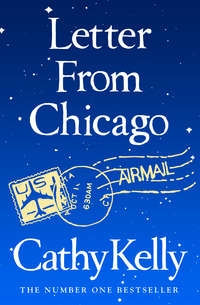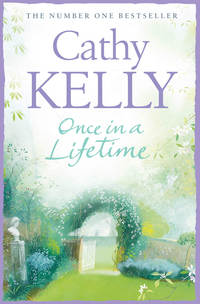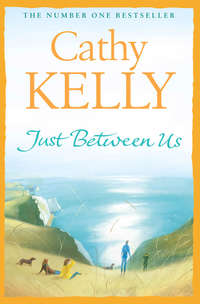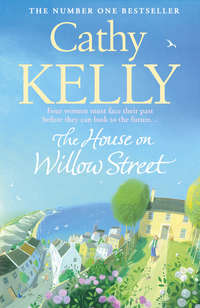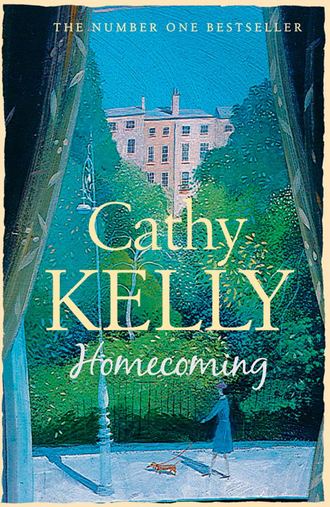
Полная версия
Homecoming
She touched her newly beringed hand to his cheek.
‘I think that’s a great idea. I was never a fan of those big, expensive weddings,’ she said gently, she, who had once upon a time dreamed of two hundred guests, a live band, wall-to-wall cream roses and a marquee decorated in floaty white muslin. Now that the time was here, all that seemed quite immaterial. They would be married and that was all that mattered.
People in the restaurant clapped as they watched Nicky gently kiss her fiancé.
Neither of the pair took a blind bit of notice of the rest of their meal. They talked about limited guest lists and how they’d present the plan to their respective parents to ensure there was no griping over endless second cousins once removed who now wouldn’t be invited.
In the taxi on the way home, they sat in joyous silence and held each other. Nicky honestly had never felt such peace.
Now all that remained was to tell her sister. Nicky knew that Connie would never begrudge her happiness. On the contrary, Connie had always wanted everything for her little sister. But this was different. This was telling the person she loved second best in the world that she was getting married – something Connie had always longed to do but had the opportunity snatched away from her by that waster Keith.
Connie had always done everything first: moved away from the family home in Wexford, gone to college, got a job, bought her own place. Now, for once, Nicky would be breaking new ground first and for Connie that was bound to be hard.
She’d be abandoning Connie too. The apartment in Golden Square belonged to Connie, although Nicky paid rent, but they’d lived there together since Connie had bought it ten years before.
For the first time in years, Connie would be totally on her own. Would she be all right? Nicky wondered.
When she got home after the hen night, Connie went into Nicky’s bedroom where her sister was half-watching an old film, and lay down on the bed next to her. Several unaccustomed glasses of wine sloshed around inside her, along with dessert wine – Sylvie had insisted, although it was sickly sweet – and what with the wine and the melancholy, she began to cry.
‘I’m so happy for her about the wedding and everything,’ Connie sobbed. ‘I love Sylvie and she deserves to be happy, but Nicky, don’t I deserve it too?’
Nicky had looked so stricken that Connie sobered up at high speed, and apologised.
‘I’m fine, honestly. Everyone was getting maudlin by the end of the night, and I kept thinking about Keith – not that I’d want him back, or anything, but you know, it was my chance to settle down and…’ She stopped talking. She couldn’t, wouldn’t, say anything about her diminishing chance to have a baby. It was too painful to speak out loud, even to Nicky. Better to keep it hidden in her heart.
‘Oh, Connie, I’m so sorry.’ Nicky still looked stricken.
Connie clambered up the bed to hug her sister. ‘Don’t mind me, I’m a mad old lady, I’ll turn into one of those ferocious spinsters of the parish and you can get married and have eleven children, and I’ll drive them all insane. We can take over the whole of this house and all the kids in Golden Square will be afraid of me. Mad Miss O’Callaghan who lives with her sister and the eleven children. What do you think?’ she grinned at Nicky, who gave her a very halfhearted grin back.
Eventually, Connie got off the bed.
‘I’ll have a terrible headache in the morning,’ she said. ‘Please, I beg you, get me out of bed at seven thirty. Mrs Caldwell will be like a weasel if the hen-night people are late in.’ The Principal considered good time-keeping to be on a par with saving the world from destruction.
‘I’ll wake you,’ Nicky said, in such a voice of gloom that Connie spent the next hour in bed berating herself for worrying her sister. Some people got what they wanted in life and some didn’t. it was futile to cry over being a have-not rather than a have. Life wasn’t fair. She knew that.
And finally, exhaustion got the better of her and she dozed off.
5 Potatoes
The famine road isn’t far from our house. It’s a stony route to nowhere, built to give men a few coppers when the countryside was riddled with potato blight. Perhaps your generation won’t hear much about the famine – it’s true, we’ve grieved enough about it, but it would be a pity if people forgot the past.
Ireland isn’t the only country to have suffered starvation. Agnes said she heard them talk at the Fitzmaurices about the people out in Africa who have nothing. There are little babies with bellies big from hunger. It must break a mother’s heart to watch a little one starve and not be able to find a crumb to feed it. It would break mine. A bit like the people eating grass here when there was nothing else.
Every time I pass that famine road, I thank the Good Lord for what we’ve got. Thanks for you, Eleanor, thanks for my beloved Joe, thanks for Agnes, the best sister ever. I get on my knees to say thanks for all the gifts I’ve been given. To some people, I haven’t got much, but I know I’ve had the best of life.
Sister Benedict in the convent says not to feel guilty over our luck in life. We all have our crosses to bear, she says, even though not everyone can see them. All lives have some pain.
This isn’t the story the canon says, mind you. Pain is what you get for sinning, according to him.
The canon has lived a sheltered life and sees every sin as worse than the cities of Sodom and Gomorrah put together. You should hear him at funerals. Most poor corpses are two inches from hellfire, to hear the canon speak. I don’t think he’s in his right mind. There’s no joy in the man. God is kind, my mam used to say. I like to pray to that God and not the canon’s one.
It’s strange that the potato blight killed so many and still we live off the potato. Your father never thinks it’s a proper dinner unless there are potatoes in it. Agnes is the same, for all the fine meals she’s had at the big house.
My mam’s Cally is the best dish you’ll ever have with potatoes. There’s many names for it, Colcannon is one, but in this part of the West of Ireland, we call it Cally. Take some nice floury potatoes and boil them in their skins. When they’re falling apart, tear the skins off, mash them, make a round shape on the plate and then pour the sauce into the middle – melted butter, with a little hot milk and some chopped spring onions. Then eat. When life is falling apart all around you, this is as good a comfort as any, I promise you.
Every morning since she’d arrived in Golden Square a week ago, Megan had woken to the noise of building work coming from across the street. The sounds of drills, diggers and builders laughing were comforting, familiar. There was always somebody building or extending something on her street in London: she was used to it as the background of birdsong and bleating horns from the street below.
So every morning, waking to the building hum, she enjoyed a sliver of time thinking that life was still glorious. She’d stretch, revelling in the feel of her body between the sheets, the body that Rob loved. For one misguided second it seemed that the day lay ahead of her with dazzling brightness: Rob’s smile as he saw her, the director’s smile as he told her that her performance was breathtaking…
Then she’d wake up properly and real life shoved out her fantasy dreamworld. Everyone hated her, her career was over and her heart was broken.
The next step in the morning routine would be awareness of something furry shifting on top of the duvet and then a rough tongue would lick whatever part of Megan was out of the covers.
‘Cici?’ she said the first morning and the shape had wriggled with delight.
Leonardo liked to lie on the floor on the other side of the bed and Megan’s sleepy voice was all he needed to start his welcoming proceedings.
Both dogs would clamber on top of her, licking and wagging their tails eagerly.
After a week, they had the routine down to a fine art. With enough licking and snuffling, they could force Megan out of bed and into the kitchen to give them dog biscuits, and then, once she’d had her morning coffee and cigarette, she might take them for a walk. Nora, of course, would have gone to work.
It was her own fault, she knew, for setting a precedent that first day. But today she had a mission to accomplish on the walk. She’d decided she needed a disguise.
It took ages to clip the leads on because the dogs were dancing about so much, but she wanted to take them with her because she figured she’d looked less strange wearing glasses she didn’t need and a dark bandana to cover her hair if she was hauling two dogs along. Mad people often had dogs. Once out of the door, the dogs pulled towards the garden in the square but Megan dragged them in the other direction.
There was a highly glamorous hairdresser’s about half a mile away, all smoky glass and exquisite hairstylists. She wouldn’t go there. They’d take one look at her and know exactly who she was, and in the fashionable clubs of the city – which they would frequent – the news of both her arrival and her new hair colour would be that night’s gossip. On the west side of the square, however, tucked in front of the Delaney council flats, was Patsy’s Salon, a place that had probably looked old and faded twenty years ago but which she’d noticed the night she’d arrived. She’d found the number in the phone book yesterday but it just rang out. So today she took a chance and went to make an appointment. If Patsy’s was closed, she’d just buy a home dye kit.
Patsy’s was remarkably busy for a place that clearly hadn’t been redecorated for many years. There were three baby-blue basins, all being used, and two women under dryers, talking loudly to each other over the noise.
One girl was delicately putting Velcro rollers into a very elderly lady’s silvery purple hair.
Megan stood for a moment watching.
‘Can I help you?’ said a woman with curled hair an unnatural red, who emerged from the back of the shop.
She had to be fifty, and boasted an hourglass figure all poured into very tight Capri jeans and a red gingham blouse fastened by buttons which looked to be under considerable strain. Megan would not have been surprised if the woman had launched into the chorus of ‘D.I.V.O.R.C.E.’ right there and then.
‘I’m Patsy,’ the woman added. ‘What can we do for you?’
‘I need a haircut and a change of colour.’ The words came rushing out. ‘I want to look different,’ Megan said. ‘Totally different.’
Patsy didn’t blink. Women had come into her shop before looking forlorn and needing a new look. You never knew what life would throw at you. Patsy’s response was to help any woman when she could and not ask questions.
‘Take a pew. I’ll be with you in five minutes.’
‘N-now?’
‘No appointment necessary,’ said Patsy, pointing to a sign that said just that on the salon’s pink brocade-papered wall.
‘That’s unusual,’ said Megan, still a little startled by the speed of it all.
‘I never know what’s coming up next,’ Patsy replied, in a voice that said she’d seen quite enough, thank you very much, and would it all stop coming, please. ‘Sit down right here.’
‘Oh no, I can’t stay,’ Megan said, recovering herself. ‘I brought my aunt’s dogs. I was simply trying to make an appointment.’
Patsy looked outside where Cici and Leonardo were tied to a lamp post and looking in with abject misery. ‘They’re not used to being left, are they?’
‘No. I’d better go.’ Megan felt inexplicably as if she might cry. Nothing worked; she was a stupid screw-up. She couldn’t even think properly.
Patsy surprised her with a soft hand on Megan’s elbow.
Which was when Megan really started to cry.
‘A man! It has to be about a man,’ nodded the little old lady with the silver blue hair. ‘They’re all bollixes, except when they’re small.’
‘Stick to cats,’ said one of the ladies under the dryer.
‘No – dogs,’ interrupted the other one. ‘Cats are like men: stay when they feel like it and off out the door when they don’t.’
Patsy ignored the philosophical chatter, went outside, untied the dogs and brought them inside the salon.
‘Sit,’ she commanded. And they sat.
She then calmly fed the two dogs a couple of plain biscuits, put a cup of unasked-for sweet tea in front of Megan and gently began unwinding her bandana.
‘Right,’ she said, looking at the platinum curls that brought movie-star glamour into the salon. ‘I see what you mean.’
She grabbed a towel, looped it expertly around Megan’s head, and busied herself mixing up colour. In ten minutes, Megan was unrecognisable in that her head was covered in gunk and she was perched under a dryer with a very wellthumbed copy of a craft magazine. The dogs, somehow soothed by the hum of Patsy’s salon and stuffed full of biscuits, lay at her feet and slept. There were other magazines around. Gossipy ones with glamorous pictures, but Patsy knew precisely who Megan was. Which was why she’d given her a magazine with knitting patterns and advice on how to turn a tea towel into a cushion.
‘Will I take much off?’ she asked when Megan was back at the mirror with wet, dark hair.
‘What would make me look different?’ Megan asked.
‘I’d go short, if I were you,’ said Patsy. ‘Very short. You’ve got the face for it. And believe me, you’ll look different.’ She began to cut.
Megan thought of Freemont Jackson, the Covent Garden artiste who’d been doing her hair for four years now, and how removing so much as a centimetre was a matter for an hour-long consultation. When she’d gone from being longhaired to having shoulder-length hair, he’d nearly had to be medicated. Well, more medicated.
‘Those luscious curls, they’re so you!’ he’d said wistfully.
And now here was Patsy, cutting away calmly, taking large chunks from Megan’s wet hair, and there wasn’t a dramatic hairdressing flounce in sight.
Megan felt unmoved as her shorn hair fell on to the salon’s black nylon gown. It was cathartic having this done, almost like wearing a hair shirt. She was punishing herself, doing away with the sexy, girlish creature who’d got into so much trouble.
As Patsy cut, Megan closed her eyes and tried not to think about Rob Hartnell’s hands as he ran them through her hair.
‘You’re so beautiful,’ he’d said. ‘My fairy princess.’
In the luxury of their hotel in Prague, he’d held her constantly, his hands on her face, around her waist, stroking her hair. She’d felt like a fairy princess in this magical city, with the sugared almond cupolas outside their windows, and the dark, romantic beauty of the Hotel Sebastien inside.
‘Let’s run away together,’ he’d said. But he was the one who’d run, alone.
Two hours after she’d entered Patsy’s, Megan looked at her new self in the mirror. For a woman whose own hair owed little to subtlety, Patsy was very good at hair colour. Megan had never had dark hair in her life. Even in films, the closest she’d come to dark was a mousy blonde. But now, with the inky black crop that clung to her small head, she looked like another person. She’d relied on her hair, she realised: relied on sexily flicking back blonde tendrils. It had defined her in some way. Blonde, pretty, child-woman.
With her skin a little tanned, she looked as if she could be from a different race. An exotic Arab woman with strange olive green eyes, dark eyelashes and a wary expression, no longer the kittenish golden girl but a watchful, grown-up woman who had seen something of life. Now, her straight nose made her look exotic instead of ethereal. The fairy princess was gone for good. It was very odd to see this stranger in the mirror. Odd, and a huge relief. Nobody would recognise her now. Megan wasn’t sure she recognised herself. ‘Thank you.’
‘It suits you,’ Patsy said.
Megan wasn’t a hugger, but she felt like hugging Patsy now.
‘Come back when the roots grow out,’ Patsy said. ‘If you’re around, that is.’
As Megan paid about a tenth of what she’d have paid Freemont for the same work, she replied: ‘I’ll be around.’
A part of Megan’s new routine was dropping into the chiropody practice downstairs at lunchtime to say hello to Nora. She’d gone in impromptu on the first day and encountered the receptionist, a bird-like woman with wildly fluffed-up grey curls and lots of purple mascara, who cheerfully told her that Nora was with a client.
‘You must be Nora’s niece,’ the bird-like lady had said with delight. ‘I’m Angeline, well, people call me Birdie.’ She held out a tiny hand and Megan shook it.
‘Yes, I’m Megan,’ Megan said, waiting for the inevitable moment of ‘– oh’ as recognition hit.
It never came.
‘Nora says you’re here on a break,’ Angeline had gone on happily. ‘I must say, a holiday sounds gorgeous right now. I could do with one myself. I normally go to the Canaries in the winter, but you know how it is: money’s tight!’
She even sounded like a bird, Megan decided, with that chirruping voice. No wonder she got called Birdie.
‘Have you ever been to the Canaries?’ Angeline went on. ‘Well.’ She didn’t wait for an answer. ‘Gorgeous, that’s what they are, gorgeous. Even if I say so myself. Spain is great, altogether. I have a friend, and she goes to Alicante for the whole of the winter with her husband, and it’s cheaper than being here. Miles cheaper, she says.’
Megan nodded. Nothing else was required.
‘You were walking the dogs, I saw you,’ Angeline continued. ‘I like dogs, but cats are very good company. Sir Rollo, he’s my cat, a Persian blue. Picky eater, I can tell you, but he’s so gentle. Never killed a mouse in his life!’
‘Do you prefer being called Angeline or Birdie?’ asked Megan.
‘Birdie!’
Megan sat down in one of the waiting-room chairs. There was something peaceful in listening to Birdie’s chatter.
‘Do you live around here?’
‘No,’ shrieked Birdie. ‘I wish I did. I love Golden Square. I’m on the avenue, it’s not as pretty but we have a cycle path!’
Having got used to Birdie’s chatter, Megan now dropped in every day. Birdie enjoyed discussing the soaps from the night before and, on occasion, the weather.
‘Cooler today but the real-feel is not too polar,’ Birdie might say.
On cold days, she wore two sets of thermals.
‘See! Anthracite with pink ribbons!’ She pulled a shred of thermal fabric up from her flat bosom for inspection. ‘Nice thermals are so hard to come by. I don’t like those white ones that go grey in the wash.’
‘Where did you get those?’ asked Megan.
‘The Internet. Fabulous bits and bobs online.’
Between clients, Nora came out and chatted too, but they talked more generally of the next client, how the dogs had behaved on their walk and if Megan would organise dinner.
It was clear to Megan that her aunt and Birdie didn’t talk about soaps or frillies on the internet.
She said as much to Birdie.
‘Nora’s a woman for science,’ Birdie explained. ‘She’s not like you and me. We’re girlie girls. Even though your hair is not girlie. Patsy did it for you?’
Megan reached up to touch the shorn dark locks. It was still strange to feel the nakedness of her jawline and neck.
‘I wanted something different.’
‘Very Ingrid Bergman,’ pronounced Birdie. ‘I’d try it myself, but I like the bouffant look.’
After dropping into the clinic, Megan was in the habit of walking through the pretty little square en route to Titania’s Palace. The eccentrically decorated tearooms looked like something you’d expect to find in an Austrian ski resort, complete with pine furniture, red sprigged curtains and Tiffany lamps casting an amber glow over the place. Even the pastries and buns were unusual, with lots of flaky pastry things dusted with icing sugar and the Greek honey-and-nuts dessert baklava instead of the usual scones. Everything about the place was comforting, from the comfort food inside the polished glass case to the friendly chatter going on all around.
Megan, who was used to a life of not eating, felt a pang of hunger as she looked at the cakes, but passed them by and asked for an Americano with an extra shot of espresso.
‘Of course, my dear. Anything else?’ said the woman behind the counter. She had very dark eyes and slanted eyebrows to match, almost like a person with Native American blood, Megan thought. Her face was alight with motherly warmth.
Please don’t be nice to me, Megan thought, or I’ll cry.
‘No,’ she mumbled. Then added: ‘Thanks.’
She took her coffee and sat at a window table where she could look out. It wasn’t that she wanted to see anything outside. These days, she couldn’t focus on anything for long because all she could see was the past. But at least when she was staring out, people were less likely to recognise her. After years of trying to be noticed, Megan Flynn wanted to disappear.
Megan loved members’ clubs. The ones where you had to have money and powerful friends to get in. Money wasn’t quite enough, you had to be somebody.
She loved being somebody. Even the tiring bits – ‘It’s Megan Bouchier! Can I have your autograph, I love all your films’ when she was coming out of the changing rooms in the Oxford Street Top Shop – were wonderful.
Other stars in her firmament complained about it loudly, but Megan never did.
According to Carole, her agent, it was due to lack of attention as a child. ‘All the big ones are like that, sweetie. Nobody loved them enough when they were little and, by God, they’re determined to make up for it now.’
Megan had laughed when Carole said that. ‘Not all of them, surely?’
‘Yes, all of them. And stop calling me Shirley. Oh, the old jokes are the best.’
They’d been in the Victory House Club at the time, drinking dirty mojitos – Carole’s own concoction, which used two types of rum – to celebrate Megan getting the part in The Warrior Queen. Carole’s business partner, Zara Scott, had joined them. Both in their mid-forties, tough and energetic, the two founders of Scott-Baird International worked hard to make sure their agency ranked as one of the most powerful in the business. It had been Zara who convinced the director of Warrior Queen to consider Megan for the part of the Roman princess. He hadn’t wanted her to start with, he was looking for an unknown, not the girl who’d blown the screen away in a Cockney gangster movie where she’d had to wield a sawnoff shotgun. But Zara had persevered until he gave in and screen-tested Megan, and suddenly she was cast: a part many actresses would have killed for, playing opposite the craggy heart-throb Rob Hartnell in a historical epic.
On their third mojito, they’d moved on from sheer joy to discussing the ins and outs of Rob’s marriage to the Tony and BAFTA-award winning actress, Katharine Hartnell.
‘Everybody says Katharine and Rob have one of the strongest marriages in the business,’ said Carole. ‘I never really trust that type of schtick. Sounds like something made up for the papers.’
‘No, it’s supposed to be true,’ said Zara. ‘I have it on very good authority. Apparently Rob and Katharine are still crazy about each other. Hard to believe, isn’t it?’
‘Well, you wouldn’t kick him out of bed for getting crumbs in it, would you?’ Carole said. ‘He’s like a brunette Robert Redford, only sexier, if such a thing were possible. Lucky Katharine, that’s all I can say.’
‘She’s pretty stunning too,’ said Zara. ‘For her age,’ she added.
‘Yes, for her age,’ Carole agreed. ‘Why do we say that about women? Nobody ever says a man is good for his age.’
Zara erupted into laughter. ‘If you’re going to go all soft on me, Carole, then get out of the business, will you?’
Carole finished her drink and looked around for the bar staff. ‘Sorry, I slipped into nirvana there. Forgot that male actors are “distinguished” when they reach fifty, and female actors are finished, unless they want to play wise old grannies.’


